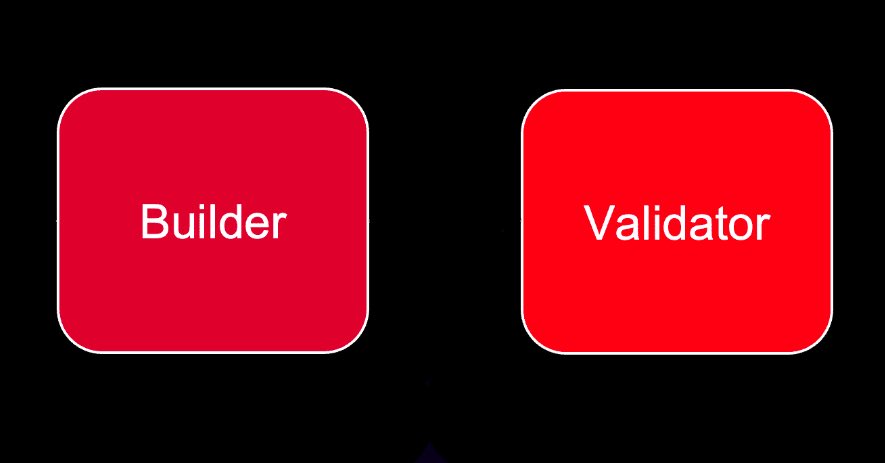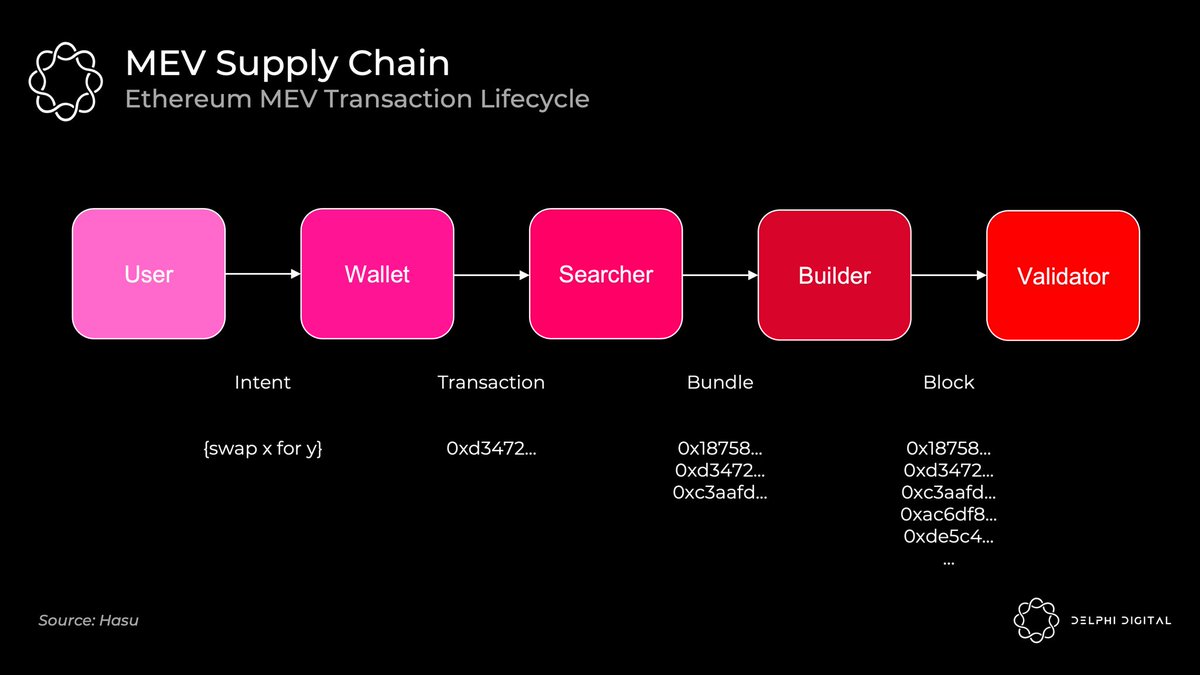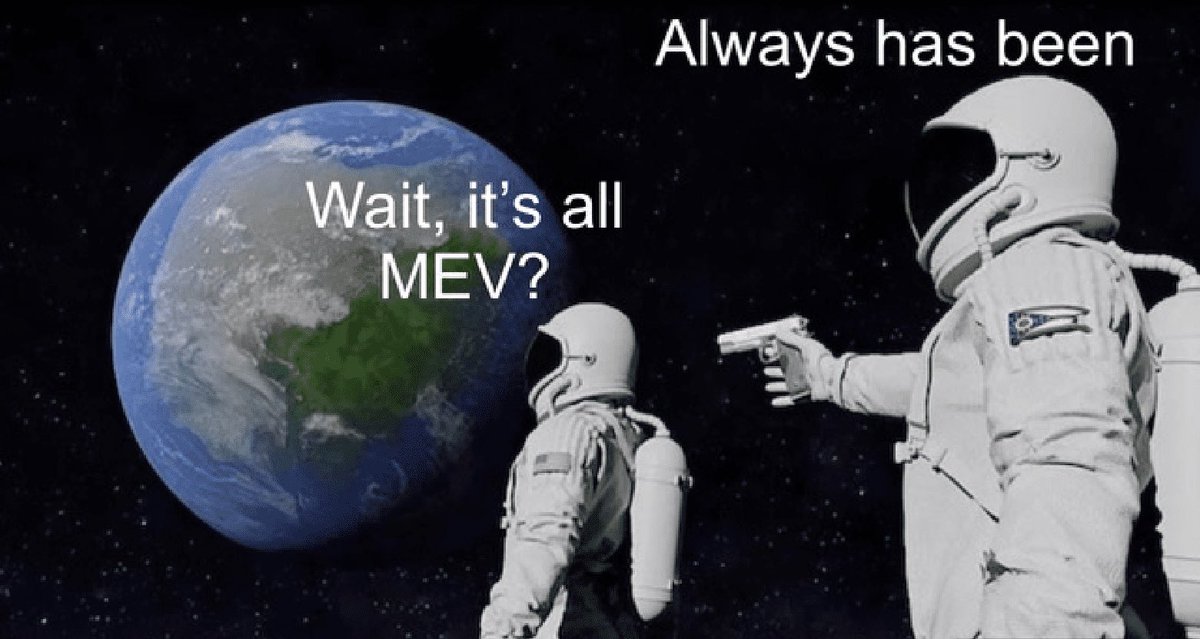
Ethereum has successfully merged from Proof-Of-Work to Proof-Of-Stake, but what does this mean? POW vs. POS, a thread on the decentralization of Ethereum
<aside> ℹ️ Simple Definitions In Proof-Of-Work, Miners have the final say over transaction ordering. In Proof-Of-Stake, Validators have the final say over transaction ordering.
</aside>
As the block production supply chain evolves, new actors are introduced:🔹 Builders🔹 Proposers (a.k.a. Validators/Stakers)

Builders attempt to build the most profitable block possible (maximizing MEV) while bidding against one another for proposers to accept their block.Proposers validate transactions and work together to select blocks to be broadcasted to the network.

While proposers tend to work together, Builders work against each other.Builders are competing against one another and tend to be more centralized than proposers as a result of the high barrier to entry in competing for MEV.
In an efficient market, competitive builders have bidding wars, pushing the majority of MEV to be captured by proposers themselves.Proposers then have the easy task of selecting the highest bid, which keeps a low barrier towards participation and ensures decentralization.

It remains to be seen how the builder market will develop. Centralizing tendencies exist, but it’s important to strive for competition.Regardless, max decentralization of validators is key towards keeping Ethereum decentralized as it embraces Proof-Of-Stake.
Ethereum's shift from POW to POS is also much more environmentally friendly and holds the potential to actually become deflationary.
Source:
https://twitter.com/Delphi_Digital/status/1570465940042563590